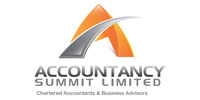As the party conference season begins, new research has found that one in five UK small businesses are unable to identify the political party that best serves their needs.
A survey of small firms, conducted by Bibby Financial Services, has found that more business owners think the Labour Party best serves their needs (33%) compared to the Conservative Party (26%); however, 22% say they don't know which political party meets their needs.
"This research indicates that SMEs feel abandoned by politicians, in general." Theo Chatha, chief financial officer at Bibby Financial Services.
Ahead of next year's general election, the findings suggest that economic growth and job creation (71%) are the most critical issue for small businesses, followed by tax policies and incentives (68%) and access to affordable financing and loans (46%).
In terms of specific measures or reforms that the next government could make in 2024, tax incentives is the policy SMEs would most like to see (65%), followed by access to low-interest loans or grants for business expansion and job creation (57%). Post Brexit, SMEs would also like to see streamlined and simplified regulations to make compliance easier (29%).
Support for small businesses
"Since the last general election, small businesses have faced myriad challenges, from sky-high inflation to spiralling interest rates and supply chain shortages," said Theo Chatha, chief financial officer at Bibby Financial Services. "Despite the odds, they've survived through sheer grit and determination. But, unsurprisingly, confidence in central government to manage the economy effectively is low.
"What they desperately want from whichever party wins the next general election are policies and action that reflect government's genuine belief in the value that SMEs deliver to the UK economy overall. That means, greater economic stability and certainty, a more favourable fiscal environment and much better access to sources of finance, so they can properly plan for growth. All SMEs really need is a supportive framework. The rest they can do for themselves."
Call for more apprenticeships
Another key political issue for small businesses is education. A poll of small business owners by SME lender Iwoca has found that 75% of small business owners in the UK think the current education system does not adequately prepare young people to take on employment.
In terms of hiring, SME owners are mainly looking for experience in the sector (33%) and the role (28%), before checking for qualifications (4%). A majority (54%) of SME owners say the small business sector does not currently have the skills it needs to succeed.
As a result, small business owners are having to make other arrangements, with 42% saying they're having to work longer hours themselves, 31% having to delay growth plans and 25% hiring temporary workers. Over three-quarters (76%) of firms say apprenticeships are key to solving the sector's chronic skills issues and 72% say the government should provide more support for SMEs to help employees upskill.
Written by Rachel Miller.
